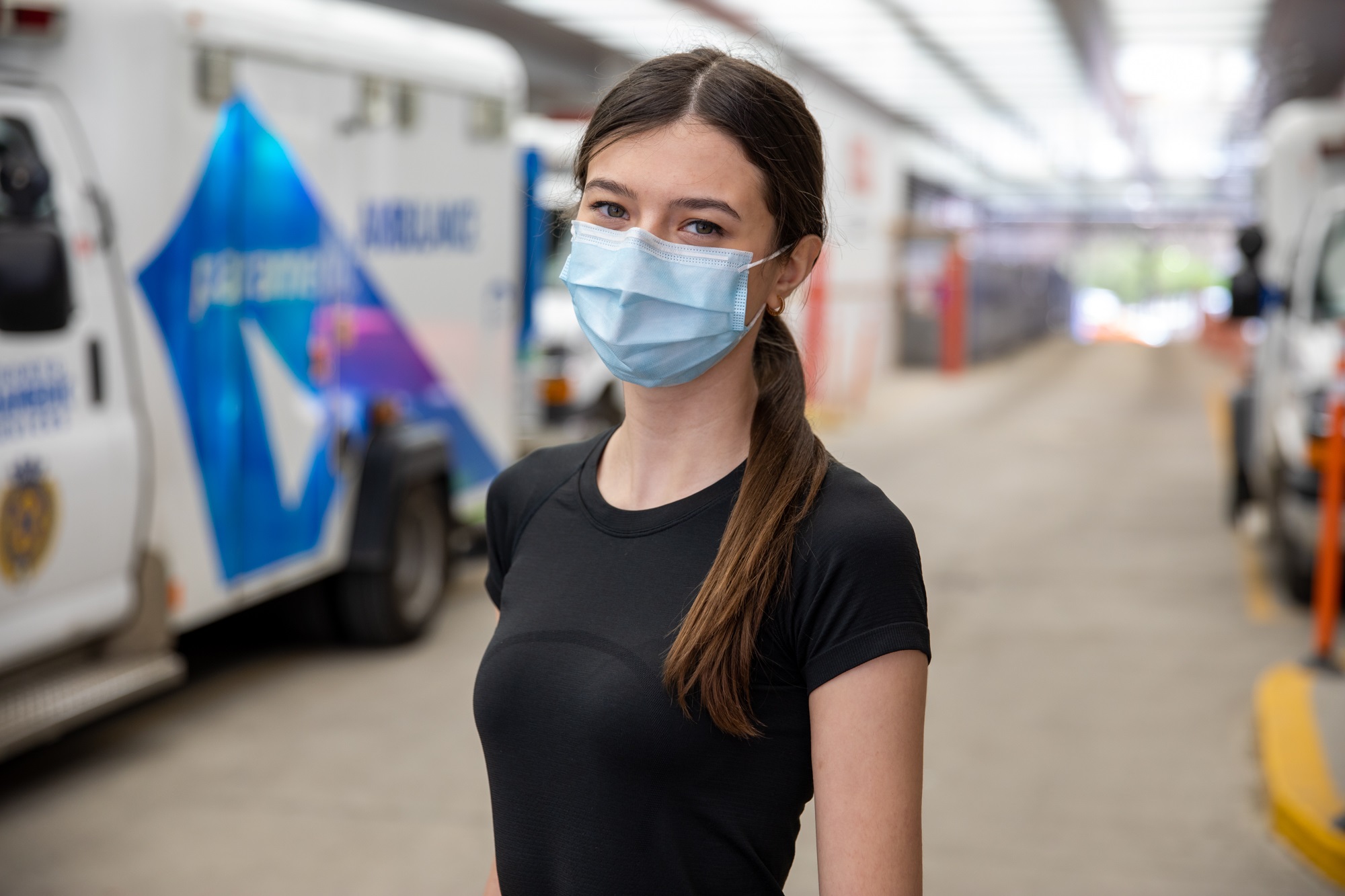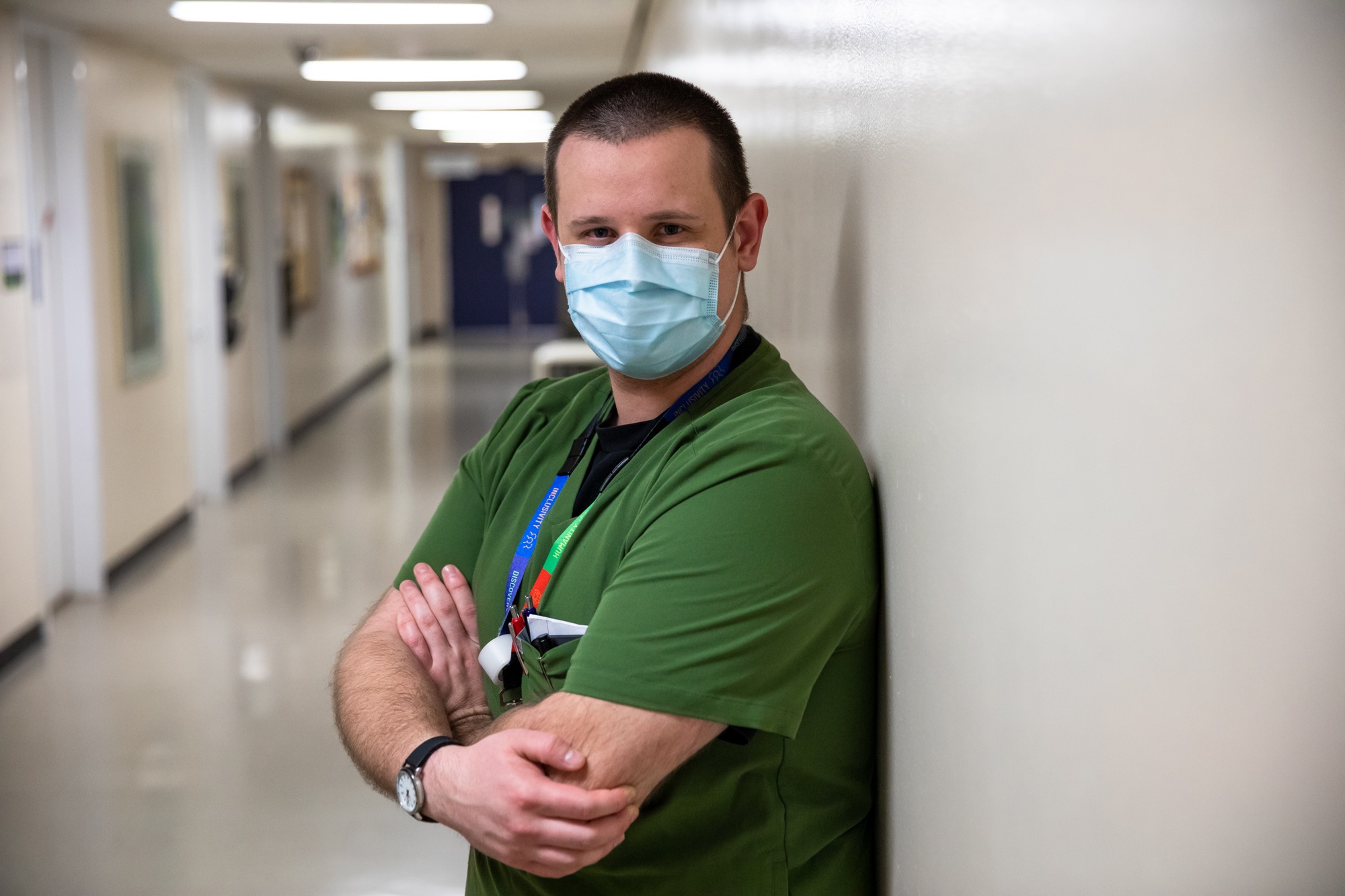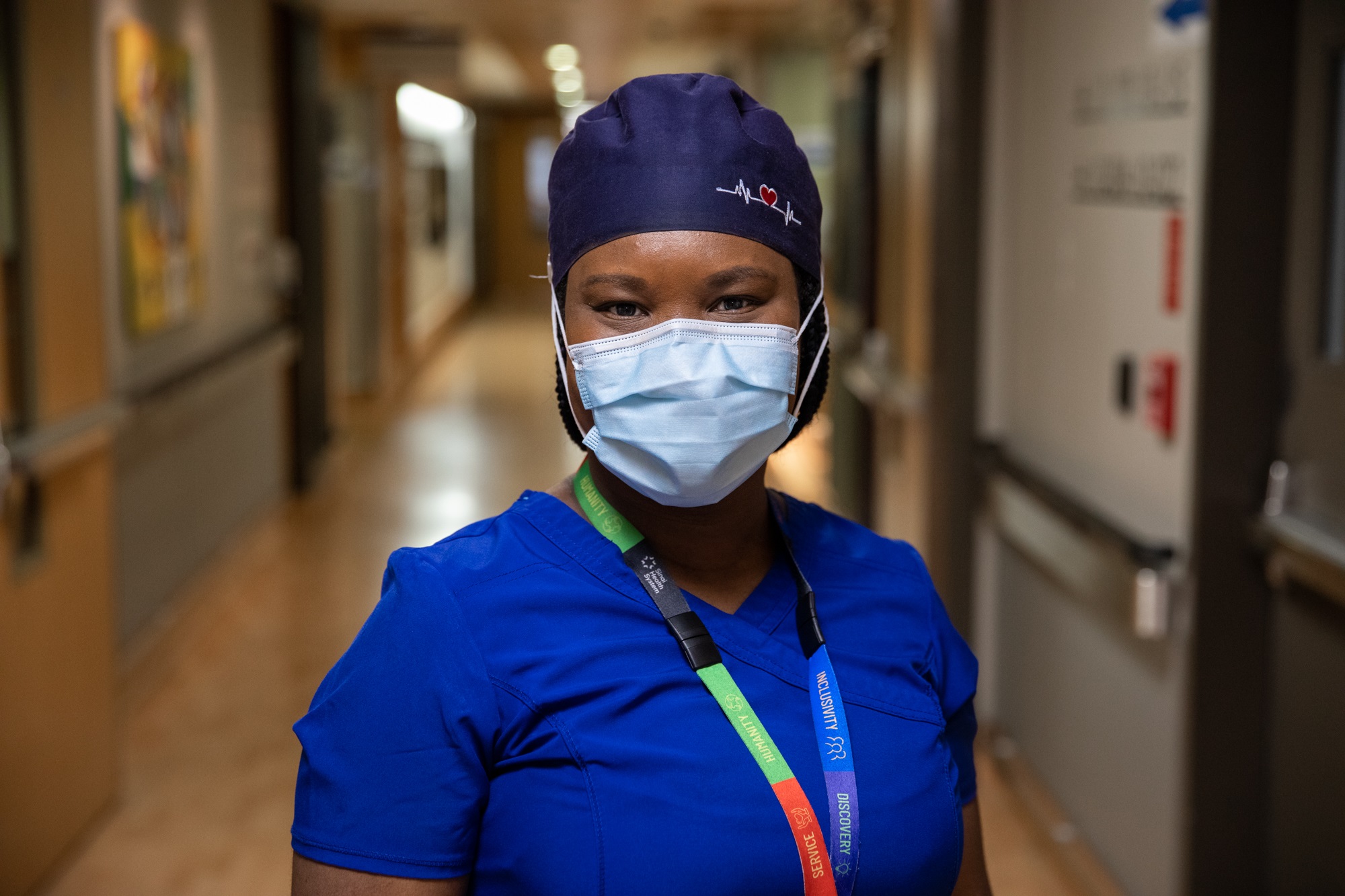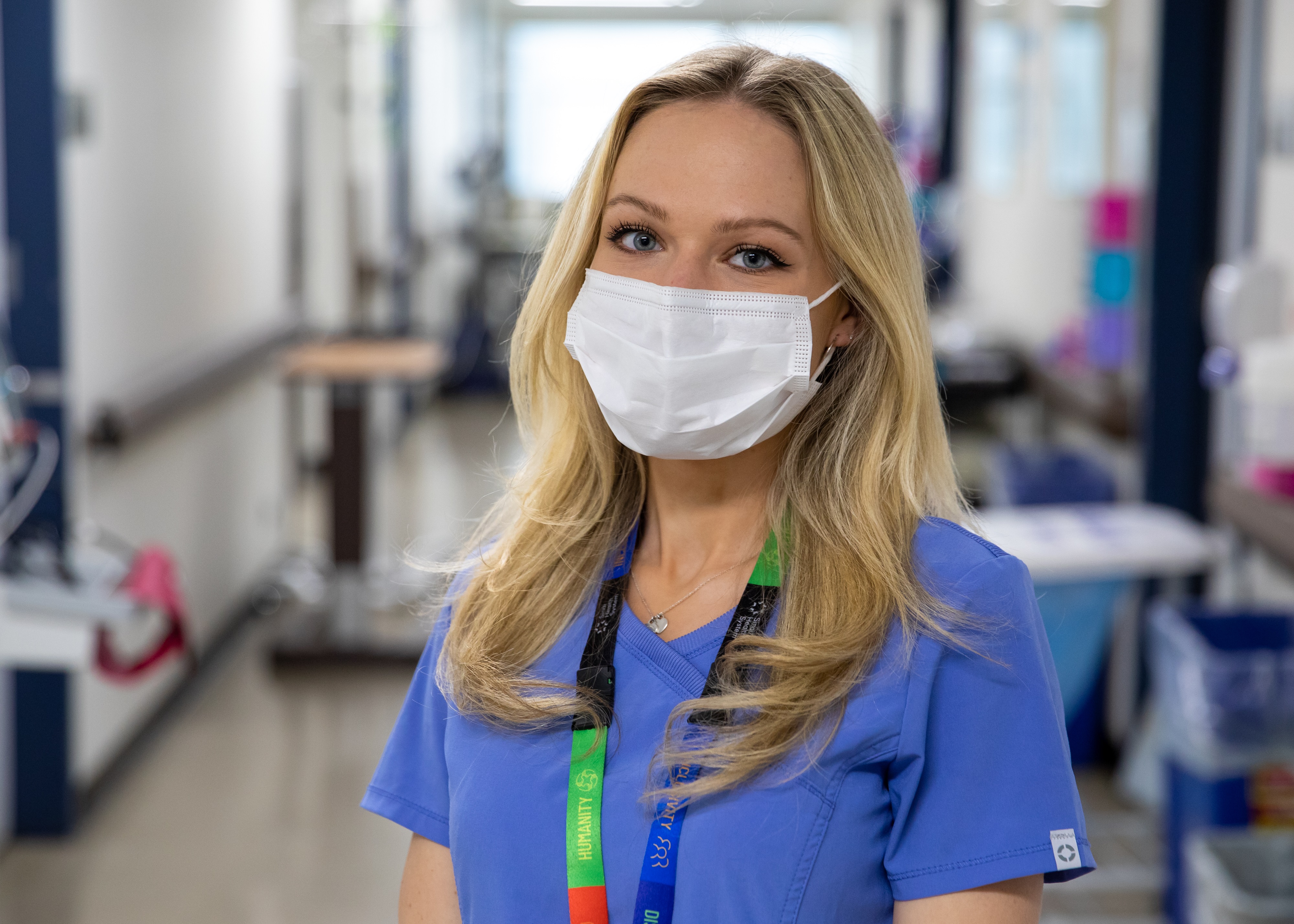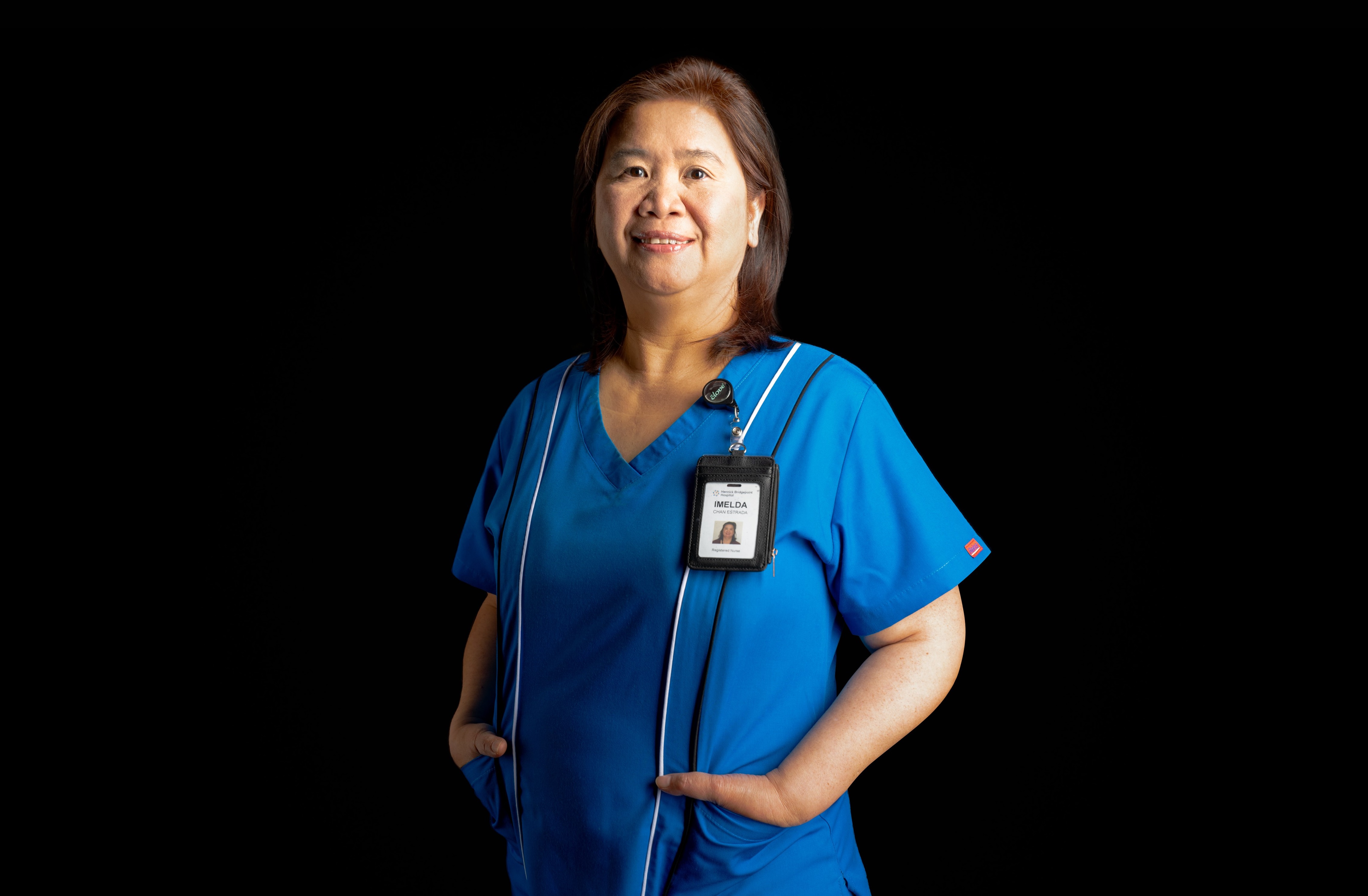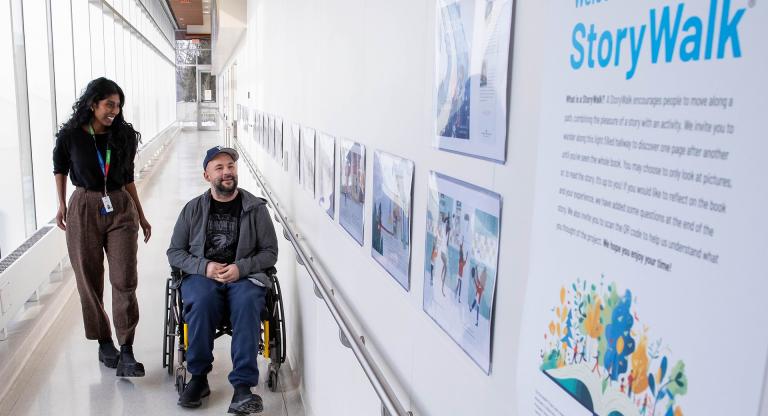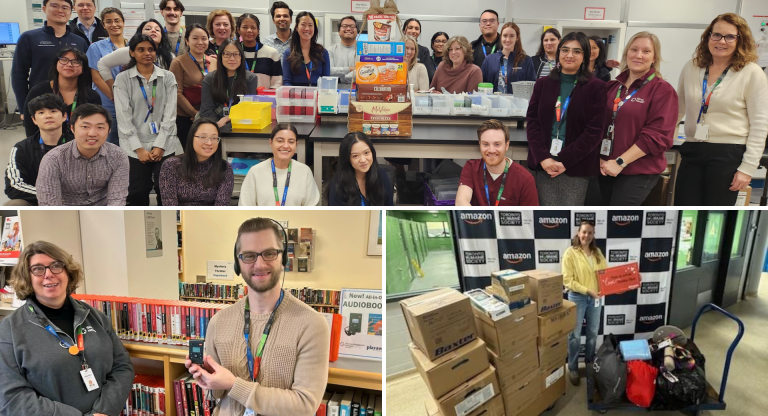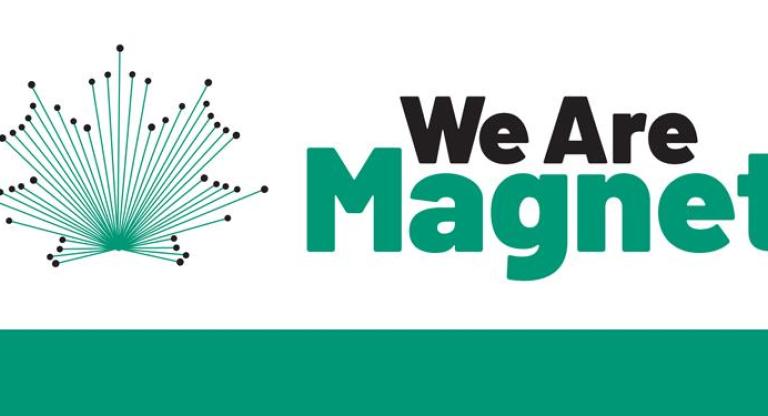Nursing Week: ‘You never stop learning’
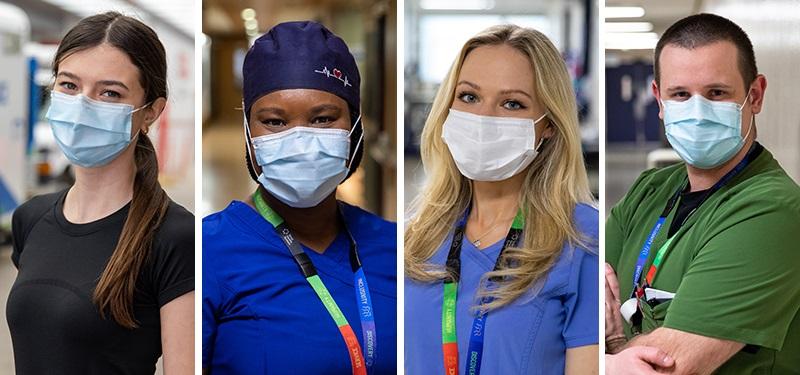
Becoming a health care professional means being a life-long learner. At Sinai Health, creating an environment where our people are inspired and equipped to flourish in the discovery, innovation and dissemination of knowledge is a priority. For nursing week, we spoke to some nurses about their experiences learning at all stages of their careers.
Launching a career
Encouraging life-long learning
“As a new graduate nurse, I was fortunate enough to start my career in the Neonatal Intensive Care Unit (NICU) at Sinai Health. I had the opportunity to learn and grow within a world-class interdisciplinary team that is passionate about teaching, learning, and evidence-based practice. Seven years later, I’m in the role of NICU nurse clinician and I’ve designed our Complex Care Training curriculum, for nurses in the NICU. It’s an education program that is true to the NICU learning experience I loved so much.
We combined different types of learning, including immersive simulations and hands-on experiences to create a learning environment that is both engaging and a safe space to ask questions and grow.
Continuing education has always been such an important part of being a nurse, but it has been especially true throughout the pandemic. Nurses have demonstrated time and time again their ability to learn, adapt, and translate that knowledge in way that is accessible to patients and families.”
—Rosemary Altobelli, Nurse Clinician, NICU, Mount Sinai Hospital
“As a student in 2017, I completed clinical placements on two floors at Hennick Bridgepoint. When I was hired, I was excited as I had such a great experience as a student.
Since I started working on the Stroke Rehabilitation Unit, I’ve participated in orientation and education days for the nursing team. During these learning opportunities, we heard from and engaged with our colleagues on the interprofessional care team, including physiotherapists, speech language pathologists, social workers, occupational therapists, physicians and others. Collaborating as an interprofessional team helps patients achieve their goals for recovery. As a nurse, these education sessions encouraged team work and helped me to better gain a good perspective of the overall care plan to better support my patients throughout their rehabilitation.”
—Caroline Hahn, RPN, Stroke Rehabilitation Unit, Hennick Bridgepoint Hospital









